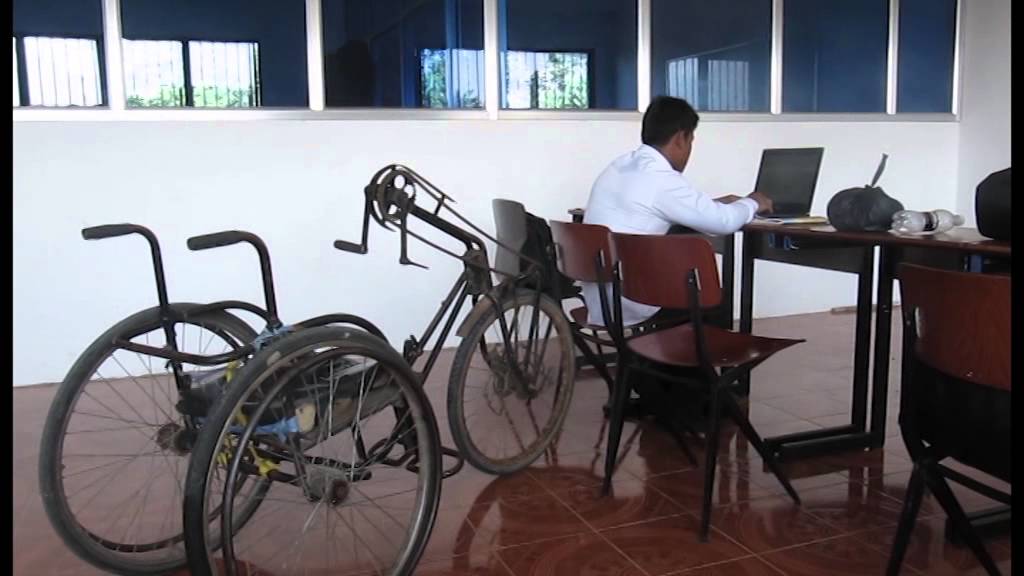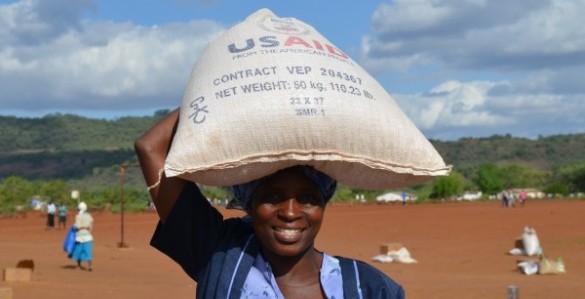GLOBAL: Alliance for Global Food Security Urges Senate to Fix Food Aid Provisions in Farm Bill
(FoodAid.org) April 30, 2012, Washington, DC – The Alliance for Global Food Security urges the Senate to revise several provisions in the 2012 Farm Bill that severely limit the use of food aid to promote development and to help crisis-prone communities become food secure and less reliant on emergency aid.
On April 26th, the 2012 Farm Bill was approved by the Senate Agriculture Committee and is now heading to the full Senate for consideration. Among other things, it reauthorizes several food assistance programs that are vital for curbing global hunger and building security in areas plagued by chronic food shortfalls – Food for Peace, Food for Progress, McGovern-Dole International Food for Education and Child Nutrition, and the Bill Emerson Humanitarian Trust.
“The Committee bill takes some good steps to improve emergency food aid, such as expanding pre-positioning of commodities in areas of potential need, but it diminishes support for nonemergency food aid programs that improve the ability of poor communities to meet their own needs. Restoring funding for those developmental programs and tweaking some of the new provisions to emphasize local capacity building is critical,” said Dave Evans, President of Food for the Hungry and Chair of the Alliance.
Mr. Evans continued, “It’s troubling that the Committee bill would authorize $10 million a year for a new program to review and coordinate ‘resiliency’ programs in the Horn of Africa; yet the bill severely limits and cuts the very programs that are actually building resiliency – particularly the Food for Peace Title II nonemergency programs.”
Food for Peace (PL 480) Title II Development Programs
Food for Peace emphasizes the importance of using food aid to promote food security in areas where people regularly suffer from hunger and children are highly malnourished. Under current law, 75 percent of Title II funds should be used for developmental programs and, at a minimum, $450 million per fiscal year must be allocated for those purposes. The Committee bill reverses the developmental focus of PL 480 Title II. Claiming that more “flexibility” is needed to use funds for emergencies, the bill cuts the minimum funding level for developmental programs by 39 percent, allowing them to fall to the historically low level of $275 million, and caps the amount of funds that can be used for nonemergency programs at 30 percent.
The Alliance urges elimination of the cap and continuation of the current minimum funding level for developmental Title II programs. Mr. Evans commented, “Developmental food aid programs are not decreasing the availability of emergency food aid; they are reducing reliance on it.”
Moreover, in addition to Title II, other funds are available to meet emergency food needs, such as the Bill Emerson Humanitarian Trust and $300 million a year in disaster assistance funds.
According to Ellen Levinson, executive director of the Alliance for Global Food Security, “More than half of Title II emergency funding is spent on programs that continue for two or more years and are located in areas that suffer from recurring crises, such as production shortfalls, droughts and economic downturns. Well-planned, developmental food aid programs are much more effective than emergency distribution those types of poor communities, which are plagued with chronic shortfalls and needs. By preserving land and water and improving agriculture, incomes, and child nutrition, millions become less vulnerable to food shortages and escape the hunger cycle.”
Using Monetization to Promote Development
As part of a nonemergency food aid program, the U.S. government may allow the sale of a commodity that is in short supply in the recipient country because of insufficient production and inadequate commercial imports. The proceeds must be used for specific developmental activities within that country. This is called “monetization.” Informally, monetization may also take place when recipients of emergency food aid sell some of the commodities they receive in nearby markets.
The Senate bill does not allow monetization for nonemergency programs if the sales price is less than 70 percent of the amount spent to buy and ship the commodity to the recipient country. That formula undervalues the commodity to a food deficit, developing country and is unworkable because it is not possible to know the procurement cost or sales price until the program is underway. The Alliance recommends changing the provision to require that the sale takes place at the fair market price for the commodity in the recipient country in order to avoid interfering with local production and marketing. In addition, there should be better coordination between the two government agencies that have monetization programs, the U.S. Department of Agriculture and U.S. Agency for International Development.
Procuring Food Aid Commodities Overseas
As a follow on to a pilot program in the last Farm Bill, the Senate bill would establish a new “local-regional purchase” program at USDA for procuring food aid commodities in developing countries for emergency or nonemergency programs. USAID uses disaster assistance funds for buying commodities overseas for emergencies and this new USDA program should avoid duplicating the USAID program. Thus, the Alliance recommends modifying the bill’s local-regional purchase program to focus on developing the capacity of low-income agricultural producers, cooperatives, and processors to supply safe, wholesome foods to their local markets and food assistance programs.
Alliance members are private voluntary organizations and cooperatives that are committed to addressing hunger, malnutrition and food insecurity. They operate in over 100 developing countries, implementing emergency and development programs that build the capacity of local communities, enterprises and institutions. For further information on food assistance programs, please see www.foodaid.org.
-##-
ABOUT THE ALLIANCE FOR GLOBAL FOOD SECURITY:
The members of the Alliance for Global Food Security are private voluntary organizations and cooperatives that are committed to addressing hunger, malnutrition and food insecurity. They operate in over 100 developing countries, implementing emergency and development programs that directly engage, support and build the capacity of local communities, enterprises and institutions. Members include ACDI/VOCA, Adventist Development & Relief Agency International, Congressional Hunger Center, Counterpart International, Food for the Hungry, International Relief & Development, United Methodist Committee on Relief, Land O’Lakes, OIC International, Planet Aid, PCI, Salesian Missions and World Vision.
PHOTO: USAID




